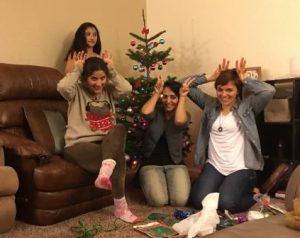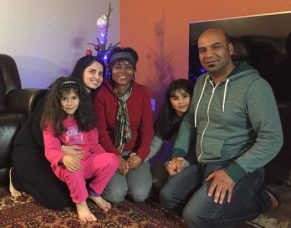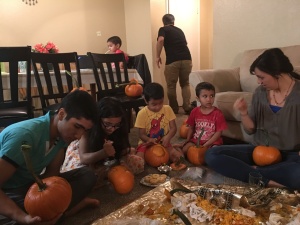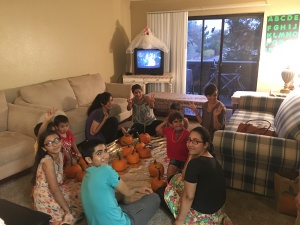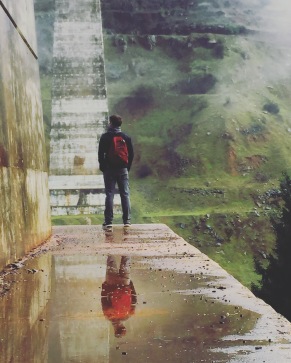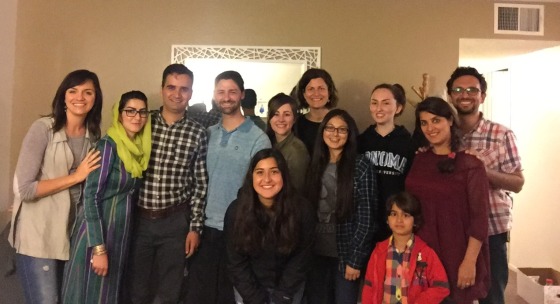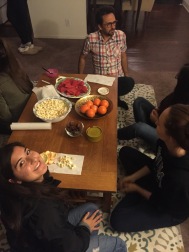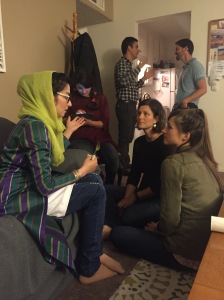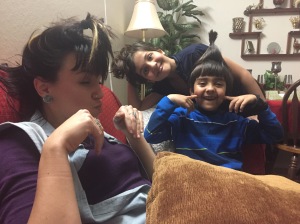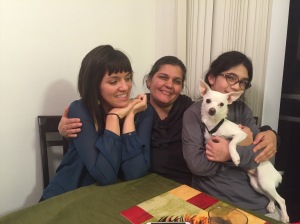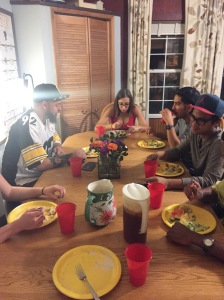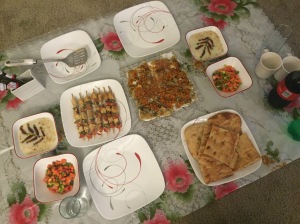Five and half years ago, I started this thing called a blog. I was going abroad for the first time. White girl living and studying in Africa for four months– oh, wouldn’t there be things to write about!
And there were.
19 years old and learning a great many things about myself and the world, I processed externally on this blog. Kept it very raw and very real. I had been journaling since age 12, and so that’s what I continued to do here, only publicly.
25 years old and I’m about to go abroad again. Only now, I find the raw and real to be generally unacceptable. The voices of many have informed how it offends, how unprofessional it can sound. If I want to become a good writer, they say, I need filter and focus…and maybe a little less frankness. They may be right.
3 years of devotion to Sacramento soil and putting my roots down here. Trying to live with and around the many peoples arriving from around the world and re-planting their roots too. Wouldn’t there be things to write about!
And there were.
There was indeed much to write about as cultural & religious-based truths met Jesus truths head on. I tried to be focused and filtered, but sometimes it was hard to draw these clean-cut and confident conclusions when my religion and worldview was being unraveled. Luckily, that didn’t leave me so much lost as much as it escorted me to fearlessly face that which I could KNOW to be true. Truths based on Jesus– who He is, what He taught, who He calls His followers to be– proved themselves true.


I began to discover and then, due to my inborn wiring, challenge others. That hasn’t been so liked. To keep it honest, mostly by other Christians.
3 weeks from now I leave the country again. I realize the learning journey that began 5 years and some months ago never did stop. As it was then, so it is now.
I’ll write and aim for a focus, but what worth is a filter. The Church of my homeland has a lot to learn about Jesus, His truths and a lifestyle that wholly follows Him. And I’m sure the Church everywhere does– but I can only speak to that which I’ve lived within.
I fail! Raw and real here… I am just now getting to really know our Jesus. Man! He is something else. Radically humble, most clever peacemaker, patient teacher and the utmost epitome of inhuman love and justice. I certainly am not these things, but wow, I would really love to be.
<> <> <>
The privilege to embark on a new adventure has so kindly brought with it a whole realm of internal transitions as well. I’ve been fundraising to do my work and live my life for the past couple years and so with that has brought about an implied obligation to report on the lessons learned and lives changed, right? Not a terribly bad thing. I like to write. Though it hasn’t been intentional, the realization is that I’ve been accidentally putting myself in the spotlight by reporting “God’s work”. A valued, but brutally honest friend so kindly told me that my writing (about the work of the ministry, updates, etc.) often sounded “self-enamored”. Whether I was conscious of it or not, he’s probably right.
This season has set me up to make one last push in the fundraising life– 6 more months and then let me tell ya, I look forward to being done. It’s not asking for money that irks me. I don’t mind that element. It was those moments when it was time to write to my financial partners and the debriefing of recent
 events are actually discoveries of this paradoxical, counterintuitive kingdom of God that I kept finding were m.i.a. in conventional Christianity. Taught frequently, conceived occasionally, lived out rarely. I was discovering Jesus in places where He said I would find Him, but religion didn’t lead me to. How could I be real and raw in that? Partners want progress. Unlearning doesn’t look very progressive to most.
events are actually discoveries of this paradoxical, counterintuitive kingdom of God that I kept finding were m.i.a. in conventional Christianity. Taught frequently, conceived occasionally, lived out rarely. I was discovering Jesus in places where He said I would find Him, but religion didn’t lead me to. How could I be real and raw in that? Partners want progress. Unlearning doesn’t look very progressive to most.
<> <> <>
I read an insta-blog this morning. You know, those written bits published as instagram posts because our generation doesn’t have the attention-span for blogs anymore? Writer is talking about flow and rhythm when he says there’s one word that really helps him keep calm through the chaos:
“SERVE. Serve at a high level. This doesn’t mean forget about you and your goals. This means to use your gifts to impact others. Focus and strengthen them not only for your story but others. In a nutshell, stop making it about you. That’s how you become a prism. A vessel, a messenger, a teacher, a catalyst. When you don’t make it about you, you panic less. You have more courage. You flow. #awriterslife.” – @theangrytherapist
I am extending this adventure of mine by becoming a sojourning learner for at least a solid four months. I so desperately want to write, but not present a conclusive lesson. I wish to listen and then relay stories, letting any readers gather their own reflective thoughts. I want to process aloud, but not sound self-righteous. I want to be free to be without a filter, real and raw, yet still trusting that my words are serving someone else. I want to flow, courageously, for the sake of both myself and others and the learning we might possibly attain together. This is what I want. I hope one day I’ll better learn what it is others want. I’ll be so happy to give it, so long as it doesn’t require anything fake or filtered.



 encouraging newly-arrived friends to put down new roots is to share life with them.
encouraging newly-arrived friends to put down new roots is to share life with them.


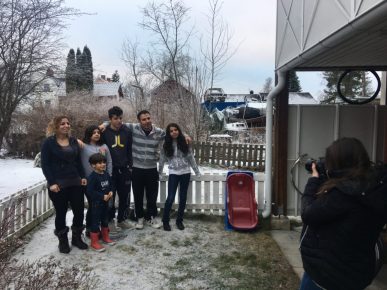
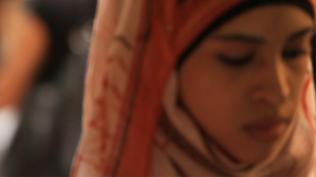 will likely never be able to personally relate to what they’ve been through and are going through. Their stories from back home can be hard on the open ears and even more painful to the soft heart. Many of our refugee neighbors are willing to share their stories from a distant country, but not all are eagerly talking about the injustices facing them right here.
will likely never be able to personally relate to what they’ve been through and are going through. Their stories from back home can be hard on the open ears and even more painful to the soft heart. Many of our refugee neighbors are willing to share their stories from a distant country, but not all are eagerly talking about the injustices facing them right here.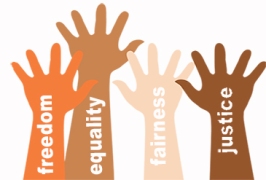 Beside considering the consequences of your choices for our own sake, perhaps we also ought to consider Jesus’ verdict on the matter. He said that our treatment of the widow, the orphan, the shelterless or the immigrant parallels our treatment of Him. What we do for them, we do for Him. When we neglect them, mistreat them, and ridicule them, we neglect Jesus, mistreat Jesus, and ridicule Jesus. (Matt. 25:27-46)
Beside considering the consequences of your choices for our own sake, perhaps we also ought to consider Jesus’ verdict on the matter. He said that our treatment of the widow, the orphan, the shelterless or the immigrant parallels our treatment of Him. What we do for them, we do for Him. When we neglect them, mistreat them, and ridicule them, we neglect Jesus, mistreat Jesus, and ridicule Jesus. (Matt. 25:27-46)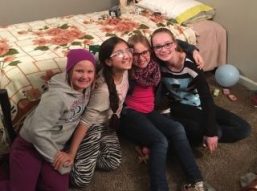 already had a tree, but was so excited for the opportunity to host guests, that the two families came together anyway. Though the language barrier was evident, the families enjoyed tea and fruit together and asked simple questions of each other. Soon enough, the girls became friends with the family’s daughter and went off to play as Ramin, the host father, immediately asked Kay and Kevin if he could tell them his story with the help of a translating friend. Following Ramin’s heart-felt story of recovery from addiction and then journey to America, he and his wife Elika led a time of singing
already had a tree, but was so excited for the opportunity to host guests, that the two families came together anyway. Though the language barrier was evident, the families enjoyed tea and fruit together and asked simple questions of each other. Soon enough, the girls became friends with the family’s daughter and went off to play as Ramin, the host father, immediately asked Kay and Kevin if he could tell them his story with the help of a translating friend. Following Ramin’s heart-felt story of recovery from addiction and then journey to America, he and his wife Elika led a time of singing 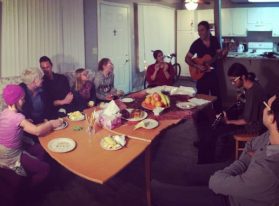 in their native tongue and playing guitar. Ramin and his son shared their wonderful skills of guitar playing with their new friends as if they had known each other for years. Kay and Kevin expressed their joy and gratitude with words and smiles and told Ramin and Elika how they will never forget this night. It was evident that they were so welcomed in the newer family’s home and that a very mutual blessing was taking place. Their fellowship lasted several hours as they eventually ate a meal together. Upon departure, Kay and Kevin invited Elika and Ramin’s family over to their home the following week. They wholeheartedly accepted.
in their native tongue and playing guitar. Ramin and his son shared their wonderful skills of guitar playing with their new friends as if they had known each other for years. Kay and Kevin expressed their joy and gratitude with words and smiles and told Ramin and Elika how they will never forget this night. It was evident that they were so welcomed in the newer family’s home and that a very mutual blessing was taking place. Their fellowship lasted several hours as they eventually ate a meal together. Upon departure, Kay and Kevin invited Elika and Ramin’s family over to their home the following week. They wholeheartedly accepted.